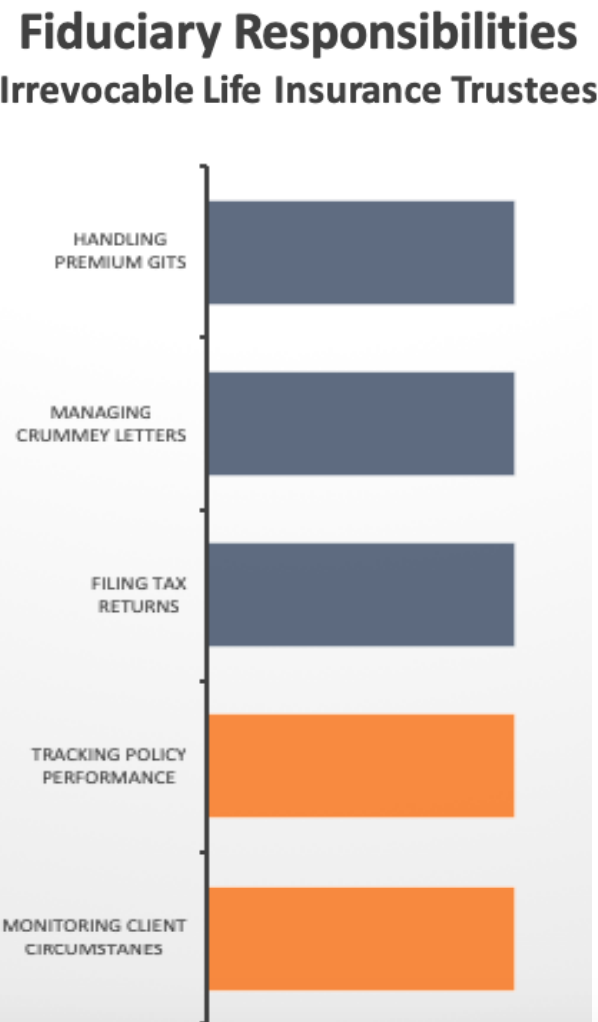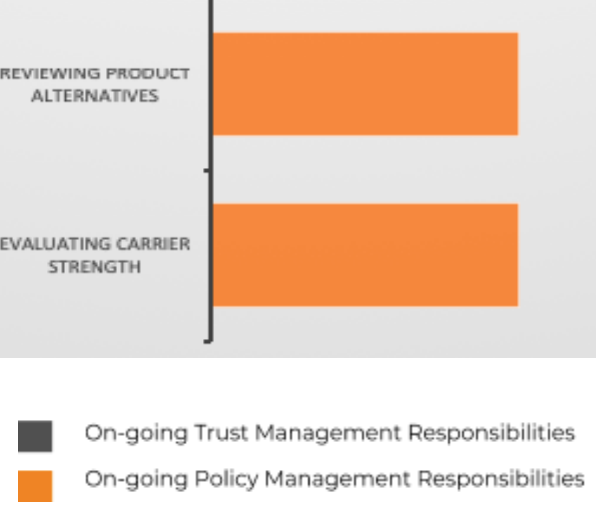There is a tremendous amount of responsibility tied to fiduciaries when it comes to irrevocable life insurance trusts. From ongoing trust management to ongoing policy management, a fiduciary is responsible for handling premium gifts, managing Crummey letters, filing tax returns, tracking policy performance, monitoring client circumstances, reviewing product alternatives, evaluating carrier strength and more. This puts the fiduciary at risk for liability exposure if all these responsibilities aren't consistently met. An automated solution for ongoing policy management like Proformex can help reduce that fiduciary risk. To see how, download our latest case study.
Fiduciaries - ILIT Responsibilities
A fiduciary is a person who manages assets for the benefit of another person. Their responsibilities include being ethically obligated to act in that person's best interests.
Because a fiduciary obligation is one of the highest imposed by law, the implications of breaching that duty can be severe.
It could include criminal penalties, but generally the penalties are civil and result in monetary damages being awarded. In some jurisdictions, punitive damages may even be awarded for violating the fiduciary obligation, especially if the violation was intentional or malicious. Punitive damages are usually not limited to actual losses and are intended to punish bad behavior.
Money managers, financial advisors, bankers, attorneys and accountants can all be considered fiduciaries. The most common type of a fiduciary relationship is between a trustee and a beneficiary. Under a trustee-beneficiary relationship, the fiduciary has legal ownership of the assets held in trust for the trust beneficiaries.
The possibility of a trustee not performing in the beneficiary's best interest is referred to as "fiduciary risk".
To avoid fiduciary risk, the fiduciary should:
- Avoid conflicts of interest
- Act in the person's best interests
- Never act in their own self-interests
- Provide proper oversight
- Make decisions that protect and/or enhance outcomes


To learn more about how Proformex helps avoid fiduciary risk, visit our website.





